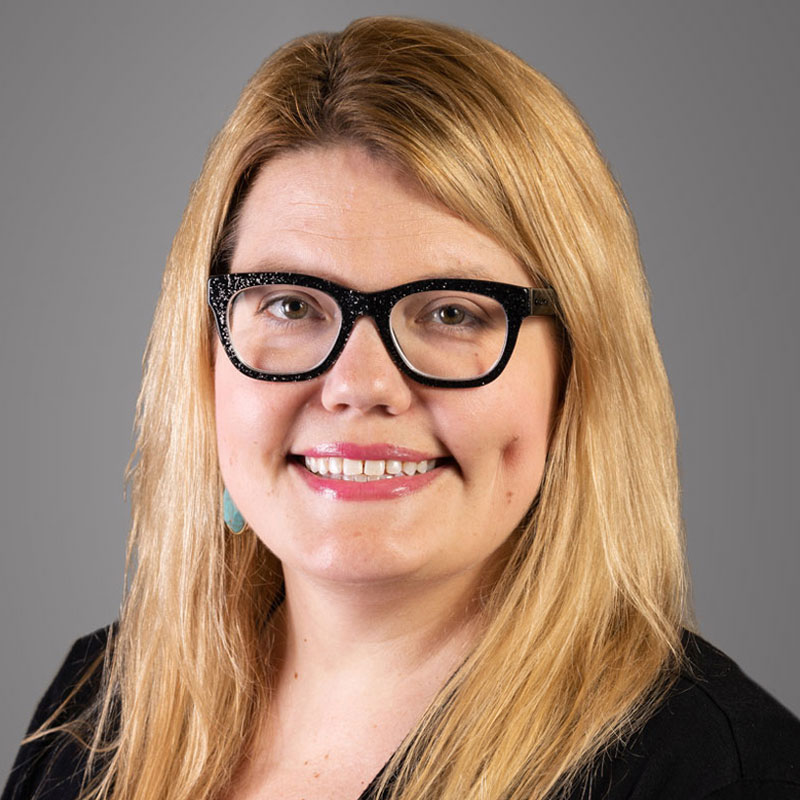
MHDI FACULTY SPOTLIGHT
Katie Edwards Associate Professor of Educational Psychology and Nebraska Center for Research on Children, Youth, Families, and Schools
Date that you joined UNL: May 2019 (I was at the University of New Hampshire [UNH] prior to UNL; I joined the faculty at UNH right after graduating with my Ph.D. in clinical psychology from Ohio University in 2011).
Hometown: I was born in Birmingham, Alabama, but spent most of my childhood in Georgia, outside of Atlanta.
Describe your research and how it contributes to alleviating or understanding health disparities?
My research seeks to answer two fundamental questions: (1) How do we prevent sexual and related forms of violence? and (2) How do we best support survivors in the aftermath of violence victimization? Using community-led approaches, most of my work focuses on Native American children and their families as well as LGBTQ+ young people. I work with communities to identify problems they want to address; create strengths-focused, culturally grounded solutions to addressing those problems; and identify how to determine through research if the solution is working. Despite alarmingly high rates and deleterious outcomes of sexual and related forms of violence, we know from my work and others that prevention is possible and that we all have a role to play in preventing violence and supporting survivors—something as simple as telling someone who makes a homophobic comment that it is not OK or telling a survivor that what happened to them was not their fault. Prevention takes a village—we all can and should be part of that village.
Sexual and related forms of violence, whether we know it or not, impacts all of us either directly or indirectly through someone we know such as a friend or family member. Personal relevance was what initially drew me to this work. My work initially started off focusing on college students and then I expanded my work to focus on younger populations; prevention must start early to be impactful. At that time, I recognized that we are doing very little to focus our work specifically on the most vulnerable of youth who also possess tremendous resilience. What is more, violence prevention programs, which are heteronormative, do not work for sexual and gender minority youth, even though they may work for heterosexual, cisgender youth. Similarly, we have few sexual violence prevention initiatives for Native American youth especially prevention that is culturally grounded and strengths focused. I have the privilege of waking up every day to work alongside communities to address these egregious health disparities and most importantly to work with communities to make meaningful and sustained change in ways that are strengths focused and culturally grounded. And, along the way, I make lifelong friends. I can’t think of anything more inspiring and fulfilling.
What advice would you give to incoming students (graduate or undergraduate) who are interested in studying health disparities? What advice would you give to incoming faculty who are interested in health disparity research?
I actually do not have different answers for these questions. My answers are the same—remember everyday why you chose this line of work and allow that to be your source of perseverance. Surround yourself by those who will support you personally and professionally. Make meaningful connections with the communities you wish to serve and allow yourself to be impacted by them. Make space for humor and laughter. Allow setbacks and rejection to motivate you. Be bold and do it in a way where others will listen. Be humble. Listen, really listen.
What would your colleagues/students be surprised to learn about you?
That I sleep! People always ask me if I sleep. Indeed, I do. Sleeping is one of my favorite activities!